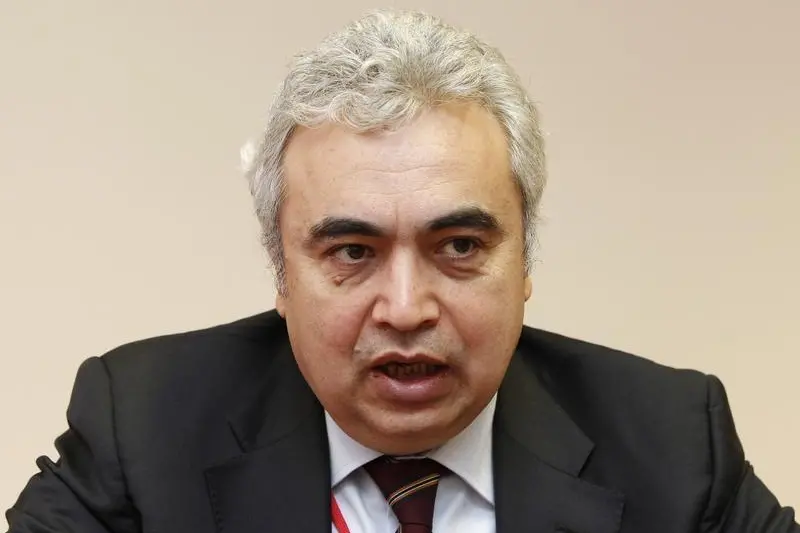PHOTO
(Adds details, quotes, background)
By Bate Felix
PARIS, June 28 (Reuters) - Nuclear power capacity grew fast last year, mainly in China, but challenges such as ageing plants and low electricity prices could hobble the sector, the head of the International Energy Agency said on Tuesday.
Global addition to capacity in 2015 hit 10.2 gigawatts, the highest growth in 25 years, the IEA's Executive Director Fatih Birol told a nuclear conference in Paris.
"We have never seen such an increase in nuclear capacity addition, mainly driven by China, and also South Korea and Russia," he said, also noting growth in India.
"It shows that with the right policies, nuclear capacity can increase," Birol added.
However, Birol said the sector was still facing some tough challenges which governments must tackle in order to meet the United Nations target of curbing global warming following the Paris climate agreement.
Nearly 200 nations reached the landmark accord last December in Paris, to cut carbon dioxide emissions and limit global warming below 2 degrees Centigrade.
Electricity generation mostly from fuel and coal-fired plants are responsible for about 40 percent of emissions, he said.
To meet the 2 degrees target, the share of nuclear power, which, although opposed by environmental groups for its contamination risks, is clean in CO2 emissions terms, needs to increase substantially from 11 percent today to close to 20 percent by 2040, Birol said.
"This is something governments must take into consideration. It will also give investors visibility," he added.
Birol said about 60 percent of the existing nuclear power fleet is between 30 - 40 years old and it was important that governments realise what they needed to do in terms of extension.
"This is a major challenge for electricity security and climate change. The bulk of this retirement is from OECD countries mainly Europe and United States," he added.
Birol said the current low coal prices and inexistent or low prices on carbon emissions was not providing the right signals to investors.
(Reporting by Bate Felix; Editing by Andrew Callus and William Hardy) ((bate.felix@thomsonreuters.com; +33 1 49 49 55 70; Reuters Messaging: Reuters Messaging: bate.felix.reuters.com@reuters.net; Twitter: @BateFelix))
By Bate Felix
PARIS, June 28 (Reuters) - Nuclear power capacity grew fast last year, mainly in China, but challenges such as ageing plants and low electricity prices could hobble the sector, the head of the International Energy Agency said on Tuesday.
Global addition to capacity in 2015 hit 10.2 gigawatts, the highest growth in 25 years, the IEA's Executive Director Fatih Birol told a nuclear conference in Paris.
"We have never seen such an increase in nuclear capacity addition, mainly driven by China, and also South Korea and Russia," he said, also noting growth in India.
"It shows that with the right policies, nuclear capacity can increase," Birol added.
However, Birol said the sector was still facing some tough challenges which governments must tackle in order to meet the United Nations target of curbing global warming following the Paris climate agreement.
Nearly 200 nations reached the landmark accord last December in Paris, to cut carbon dioxide emissions and limit global warming below 2 degrees Centigrade.
Electricity generation mostly from fuel and coal-fired plants are responsible for about 40 percent of emissions, he said.
To meet the 2 degrees target, the share of nuclear power, which, although opposed by environmental groups for its contamination risks, is clean in CO2 emissions terms, needs to increase substantially from 11 percent today to close to 20 percent by 2040, Birol said.
"This is something governments must take into consideration. It will also give investors visibility," he added.
Birol said about 60 percent of the existing nuclear power fleet is between 30 - 40 years old and it was important that governments realise what they needed to do in terms of extension.
"This is a major challenge for electricity security and climate change. The bulk of this retirement is from OECD countries mainly Europe and United States," he added.
Birol said the current low coal prices and inexistent or low prices on carbon emissions was not providing the right signals to investors.
(Reporting by Bate Felix; Editing by Andrew Callus and William Hardy) ((bate.felix@thomsonreuters.com; +33 1 49 49 55 70; Reuters Messaging: Reuters Messaging: bate.felix.reuters.com@reuters.net; Twitter: @BateFelix))





















